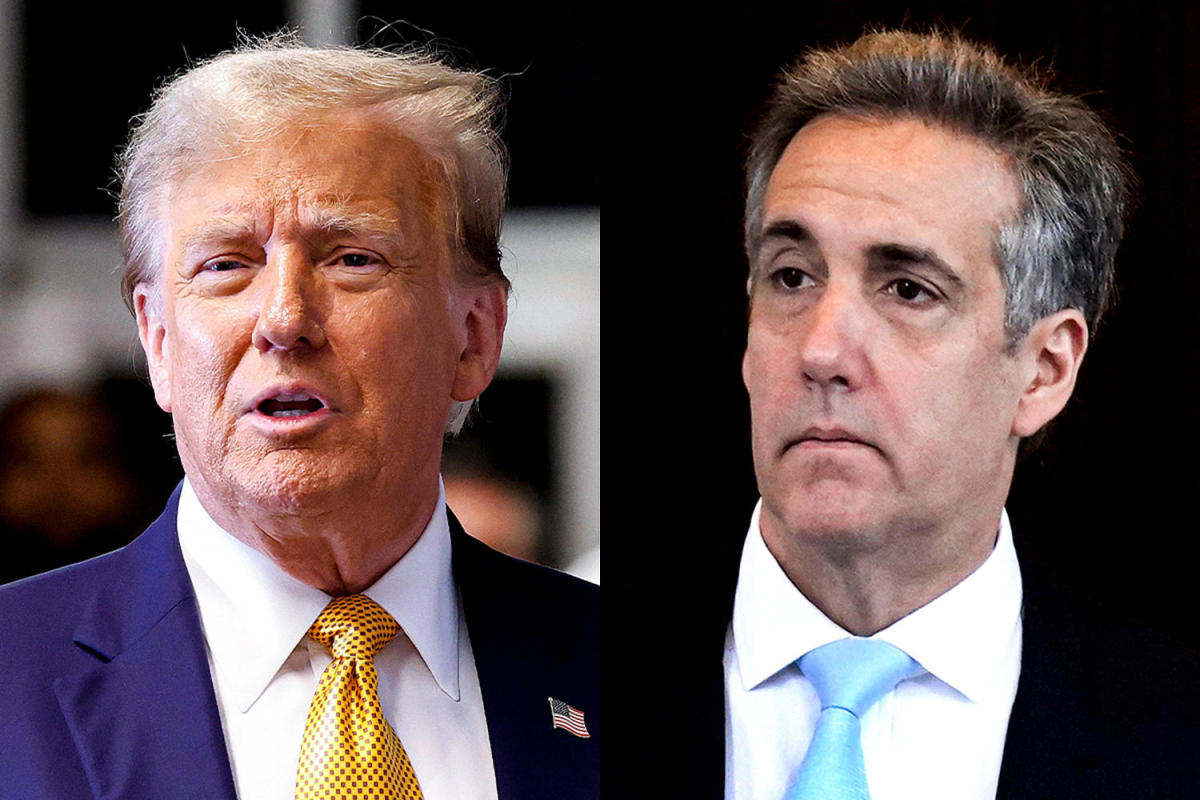In DC, a new wave of AI lobbyists gains the upper hand

In a shift for Washington tech lobbying, companies and investors from across the industry have been pouring tens of millions of dollars into an all-hands effort to block strict safety rules on advanced artificial intelligence and get lawmakers to worry about China instead — and so far, they seem to be winning over once-skeptical members of Congress.
The success of the pro-tech, anti-China AI push, fueled by several new arrivals on the lobbying scene, marks a change from months in which the AI debate was dominated by well-funded philanthropies warning about the long-term dangers of the technology.
The new influence web is pushing the argument that AI is less an existential danger than a crucial business opportunity, and arguing that strict safety rules would hand America’s AI edge to China. It has already caused key lawmakers to back off some of theirmore worried rhetoric about the technology.
“What we don’t want to have happen is have [advanced AI] development occur outside of the United States,” Sen. Mike Rounds (R-S.D.), one of four lawmakers in Senate Majority Leader Chuck Schumer’s AI working group, told POLITICO. “So we’re not going to try to restrict development here.”
The effort, a loosely coordinated campaign led by tech giants IBM and Meta, includes wealthy new players in the AI lobbying space such as top chipmaker Nvidia, as well as smaller AI startups, the influential venture capital firm Andreessen Horowitz and libertarian billionaire Charles Koch.
Their lobbyists are hoping to influence a pivotal moment in Washington AI policy. In the Senate, Schumer is drafting an AI legislative framework and promising to offer it “in a few weeks.” And the Biden administration is now making key decisions about how to enforce its sweeping AI executive order.
Until recently, the AI regulation debate was dominated by experts and executives warning policymakers about cataclysmic risks — like the potential for new AI models to develop deadly bioweapons, or even become sentient and exterminate humanity — and demanding strict rules on the most advanced models.
“They were the biggest and loudest voices out there,” said chief IBM lobbyist Christopher Padilla. “They were scaring a lot of people.”
Now IBM’s lobbyists have mobilized, along with their counterparts at Meta, Nvidia, Andreessen Horowitz and elsewhere. They want Washington to reject strict safety rules and to back “open-source” AI models, which scare some safety advocates because key elements of their source code are publicly available.
The full-court press is having an impact. Sen. Todd Young (R-Ind.), another senator in Schumer’s bipartisan AI group, told POLITICO that many in Congress have abandoned their once-fearful tone about the technology’s rapid development.
“I think the more people learn about some of these [AI] models, the more comfortable they are that the steps our government has already taken are by-and-large appropriate steps,” Young told POLITICO.
He said many of his Senate colleagues are now “imbued with a certain humility they may not have had going into the conversation,” and said he’s personally “apprehensive about constraining innovation.”
Last year, Rep. Ted Lieu (D-Calif.) declared himself “freaked out” by cutting-edge AI systems, also known as frontier models, and called for regulation to ward off several scary scenarios. Today, Lieu co-chairs the House AI Task Force and says he’s unconvinced by claims that Congress must crack down on advanced AI.
“If you just say, ‘We’re scared of frontier models’ — okay, maybe we should be scared,” Lieu told POLITICO. “But I would need something beyond that to do legislation. I would need to know what is the threat or the harm that we’re trying to stop.”
With no new federal AI laws passed and Congress still unclear on its priorities, the Washington lobbying landscape has become a war of almost philosophical arguments backed by significant money — one side warning that AI poses existential risks to humanity, and the other cautioning against rules that slow or block its transformational benefits to society and national security.
Each side is backed by major corporations. Microsoft and OpenAI, in particular, have advocated for tight safety restrictions and licensing requirements that could favor companies with the most powerful A.I. models — arguments boosted by a sprawling network backed by a handful of tech billionaires.
The voices of the worriers largely dominated early Senate hearings and White House meetings on AI, and their concerns were strongly reflected in an October executive order requiring regular safety reports on very powerful A.I. models.
Other companies, like Meta and IBM, which rely on open-source AI models rather than the closed-source framework pursued by OpenAI, Google and others, are pushing for a more open-ended approach with fewer rules — a view that has powerful allies among venture capitalists and self-styled futurist thinkers.
The fight over AI safety has prompted a number of powerful newcomers to descend on Washington — including Nvidia, the world’s third-largest company by market valuation and the leading designer of AI chips.
Nvidia didn’t hire its first Washington lobbyist until late 2022. But according to two people familiar with its lobbying, granted anonymity to discuss sensitive conversations, the company is now urging Washington to avoid placing devices on AI chips that would let the government track or control their use.
The two people said Nvidia lobbyists are badmouthing a recent proposal by the Center for a New American Security think tank to require “on-chip governance mechanisms,” arguing it would undermine security by creating backdoors into sensitive systems that could be exploited by cybercriminals or geopolitical rivals like China.
An Nvidia spokesperson would not directly confirm that the company is lobbying against on-chip governance plans. But the spokesperson said that while such systems are “still many years away,” they “must protect security, confidentiality, and privacy and not introduce backdoors and other system vulnerabilities that malicious actors can exploit.”
Yacine Jernite, the machine learning and society lead at AI startup HuggingFace, calls fear about AI-induced catastrophes “science fiction” and a “huge distraction.” HuggingFace hired its first lobbyist last year, and Jernite says he saw Washington start to shift on the topic soon after.
“When it makes it to regulators, when it makes it to people actually writing the laws — especially the staffers, but even the members of Congress — this seems to not be as taken as seriously as it was, I think, at the very beginning,” Jernite said.
Venture-capitalist firm Andreeseen Horowitz is spending its first-ever lobbying dollars in Washington, pouring more than $1 million since the start of 2023 into advocacy for open-source AI and a hands-off approach to cryptocurrency. In an April podcast, firm leaders Marc Andreeseen and Ben Horowitz said persistent advocacy has caused Congress to grow “cynical” about warnings that AI will cause major destruction.
“This is a winnable war on behalf of startups and open source, and freedom and competition,” Andreeseen said. “I’m worried, but I’m feeling much better about it than I was nine months ago.”
New organizations are also springing up in Washington to promote laissez-faire approaches to AI. They include the Abundance Institute, a libertarian tech-policy nonprofit backed by Koch dollars and what Neil Chilson, the group’s head of AI policy, called donations from “Silicon Valley and Austin types.”
“There is a waking up in Silicon Valley,” Chilson said. “They didn’t really think it was important to talk to DC. And I think that’s different now.”
The new entrants are bolstered by longtime lobbying muscle.
Last December, IBM linked up with Meta to form the AI Alliance, a consortium created to head off new licensing requirements and prevent rules against open-source AI. Padilla said half of IBM’s roughly 20 lobbyists are working full-time to oppose AI licensing or closed-source mandates. The company has spent more than $4 million in Washington since the AI debate took off in mid-2023.
Meta has also sunk significant lobbying resources into the open-source fight. The social media giant spent more than $17 million lobbying Washington since mid-2023, including on open-source and AI safety proposals. The company also tapped five new firms to lobby on AI last year. Meta spokespeople declined to comment on their strategy.
IBM and Meta lag behind Microsoft, OpenAI, Anthropic and Google in developing cutting-edge AI systems. That gives them a financial interest in promoting open source, which is seen as the best way to catch up.
“We’re not trying to hide the commercial interest,” Padilla said. “We’re just saying, ‘Hey, let us all compete. Don’t have a government licensing regime that restricts competition.’”
Some ideas advanced by IBM’s foes continue to find a receptive audience. In April, Sen. Mitt Romney (R-Utah) and three other senators unveiled a proposal that would establish an AI oversight body to license advanced models.
“I know the tech industry would like nothing, but that’s not an option,” Romney told reporters, when asked whether lobbyists had pushed back on his plans.
But many tech lobbyists say Romney’s support for tough AI safety rules is increasingly an outlier in Congress. Padilla said IBM lobbyists have simply outmaneuvered the “AI safety” lobby, which has fewer ties in the nation’s capital and less familiarity with how Washington works.
After months of conversations with IBM and its allies, Rep. Jay Obernolte (R-Calif.), chair of the House AI Task Force, says more lawmakers are now openly questioning whether advanced AI models are really that dangerous.
In an April interview, Obernolte called it “the wrong path” for Washington to require licenses for frontier AI. And he said skepticism of that approach seems to be spreading.
“I think the people I serve with are much more realistic now about the fact that AI — I mean, it has very consequential negative impacts, potentially, but those do not include an army of evil robots rising up to take over the world,” said Obernolte.
Source
mypresscity



